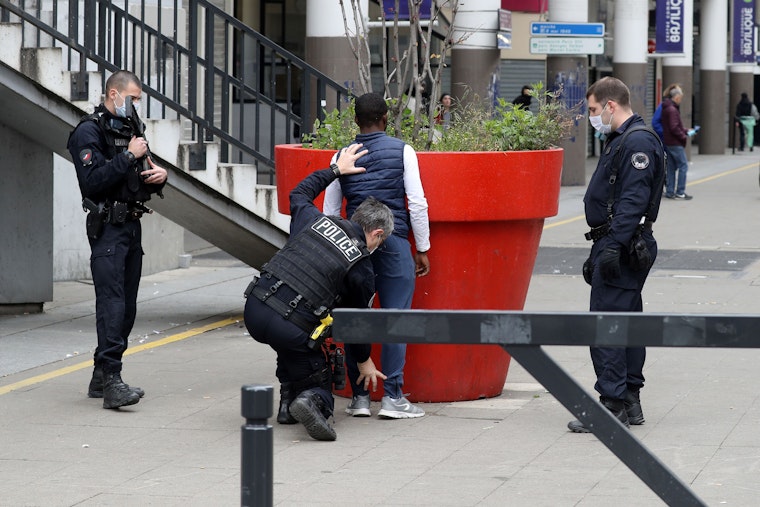Why We Are Going to Court to Fight Racist French Police Tactics

A long legal campaign to challenge racial discrimination by French police officers has entered a new stage, with the filing of a group complaint against the discriminatory stop and search procedures known in French as “contrôle au faciès.”
The filing by lawyers, advocacy groups, and individuals before the Conseil d’Etat in Paris uses a new class action procedure only introduced in 2016. The plaintiffs, including the Open Society Justice Initiative, are calling on the French government to adopt a bloc of comprehensive reforms to address the systemic nature of ethnic profiling—manifested in discriminatory police stops.
The Justice Initiative’s Lanna Hollo spoke with two other participants in the class action lawsuit: Issa Coulibaly, who heads Pazapas, a youth group in the Bellville neighborhood of Paris, and Myriame Matari, a lawyer based in the central French city of Lyon. Here’s what they said:
Issa: Why is contrôle au faciès a problem? Because it happens so very often. It’s an experience that only affects some people, and is not experienced by the others who are not a target, who don’t live the experience. And those that don’t live it, don’t know it.
It’s done totally at the discretion of the officer involved; you never know why you are being stopped. But you can draw your own conclusions—that the people who are stopped are being treated that way because of their race. It starts at a very young age, at 12, 13, or 14. To be stopped in the middle of the street, to be picked out of a group; to be spread-eagled, but never sufficiently so, to have your ID checked, to be frisked, in front of everyone. And all for nothing. And this happens over and over again. Maybe several times on the same day.
Myriame: Above all, it’s a reminder that you are not a member of French society. And it reinforces prejudices. Because other people see the same kind of people being stopped all the time, and that fuels racism and xenophobia and negative images. To be stopped and singled out when going into town with friends; or stopped on the way to work; or checked on a train: all these experiences run counter to the idea of being part of this society.
Issa: For me it’s one of the things that crystalizes the nature of discrimination, the feeling of never being being treated as truly French. It gives one the feeling of not being a citizen, of being second class. It’s a problem that is denied, not only by the authorities, but also by people who don’t experience it. Some people have tried to change things, but although it’s been identified as a problem for decades, the progress has been minimal, or even non-existent.
Myriame: And yet, France has declared the right to “equality” between people, and the right to be free from discrimination. Yet these police stops show clearly that while these rights may be proclaimed in principle, they’re not respected in practice for all citizens, and in particular for those that are stopped on the basis of supposed ethnic origin, and not for any form of criminal behavior. For us that’s a fundamental problem both for the rule of law and for France’s founding principles.
Issa: Discrimination in France is a huge problem, widely denied, and linked to the country’s history: and these police stops are both a small problem and a big problem. Little when compared with the impact, say, of discrimination in employment, or in housing. But it’s also a big problem because it’s one of the most shared experiences, at a social level, touching everyone who is seen through the lens of race. We work with young people who are most affected; we are engaging because we see it as the first in the bigger chain of dominoes of racial discrimination that we want to topple.
Myriame: This legal action is the latest in a long history of struggle against discrimination, such as the marches against racism in the 1980s, and many individual legal actions taken against discrimination by individuals. What’s different about this lawsuit is that we are seeking not only damages for those directly affected, but measures to change and transform the way things are.
We hope we can get a judgment to require the government to put in place measures to address this problem that have been under discussion for many years. Other countries have taken such steps, but France not yet. We need the recognition that there is a systemic problem that requires systemic solutions. And we want a ruling that makes it clear that the law is there to protect everyone.
Issa: Instead of denial, we want measures that reduce and stop these abuses. We want a clear legal ruling: that the problem exists, that it’s a real problem, and that the state needs to take steps to stop something that leaves a whole group of French citizens on the sidelines.